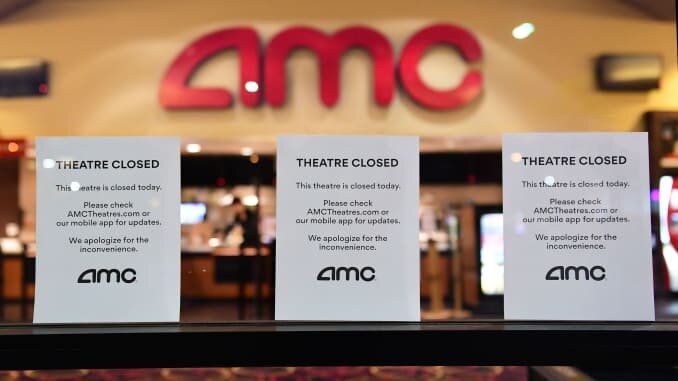It is not hyperbole to say that 2020 is the worst year for the movie theatre industry. Due to the COVID-19 outbreak, theatres have been closed since March. While a temporary closure of a couple of weeks may have been weathered, a prolonged closure with not incoming revenue is disastrous. AMC Theatres is projected to lose over 2 billion dollars in the first quarter alone. Many are speculating that this could lead to bankruptcy and ruin for the nation’s largest theatre chain.While it may be premature to read last rites for AMC, it does feel like the brand is off to hospice.
I worked in the theatre industry from 1998 to 2014. First at Cineplex Odeon, which got replaced by Loews Cineplex, which in turn got bought out by AMC. I worked with some wonderful people and generally enjoyed my time in the industry. It gave me unique opportunities like working atthe Seattle International Film Festival. By the end of my employment I could see things were starting to wear thin, both from a business standpoint and from audience enthusiasm.
Movie theatres run with very small margins. Ticket revenue predominantly goes back to the studios (there’s varying percentages of who gets what). Even with the overpriced concessions and preshow ad revenue, keeping things profitable is a challenge. Although the 2010 Affordable Care Act helped all full-time employees get health care coverage, AMC’s solution was to reduce their floor staff to part time. The ripple effect this change had on staff was a lack of interest and effort. Who could blame them? Low pay and low hours do not lead to a motivated work force.
In addition to this, management found themselves trying to wear multiple hats. AMC used to have dedicated professionals in charge of building maintenance. These positions were phased out of most locationsin an effort tosave money. These responsibilities then fell to theatre management who were already dealing with cash handling, inventory control, HR, payroll, and scheduling. This assumes that management was up to the task, and not everyone wants to be replacing soiled seat cushions at 1 AM.
One of the harder parts of working at a movie theatre was the schedule. Late nights, weekends, and holidays were the norms. I would tell our staff that while this was difficult for us, it may mean the world to our customers. Someone who is new to a town or just a bit lonely gets a chance to share an experience with others. I will never forget the sight of 300+ people trying en masse to catch their breath during the naked wrestling fight in Borat. Or the scream of anticipation that a sold out showing of Twilightproduced.
Outside of franchises with their built-in fan bases, this shared sense of enjoyment was waning. The use of cell phones during screenings is the epitome of selfish behavior. The bringing of small children because one could not get a babysitter. The refusal to clean up after one’s self. These sorts of behavior are symptoms of a larger cultural aspect within the United States.Since our area had a sizeable Korean population, we would screen Korean films. I enjoyed sampling Korean cinema such as The Man FromNowhere and The Host. I marveled at the differences between audiences. One was clean, courteous, and quiet. The other was loud, filthy, and argumentative.I’ll let you decide which was which.
The American attitude of “someone else will do it” results in mounds of garbage after the credits, which requires significant cleanup and delays audience seating for the next show. Bathrooms become full scale disaster zones after hundreds rush into them. For those that need a reminder, please flush when using a public bathroom! Yet customers don’t want to acknowledge the consequences of shared bad behavior. The blame always falls to the hardworking yet underpaid staff.
Leaving the industry was prompted by a few different factors. The schedule of late nights, weekends and holidays while manageable in my 20s became torturous to a recently married man in my 30s. Additionally, there became less and less to feel good about within the work. Concession food should be a treat but seeing an eight-year desperately hugging a 64oz cup of soda that he clearly didn’t need was disheartening. There was also the feeling that most nights at the theater I wasn’t safe. Even before the Aurora shooting during The Dark Knight Rises we had training for what to do during an active shooter event. It was treated like a fire drill, something that just happens. It is bad enough to have someone scream at you because you won’t refund their ticket, it’s made worse by wondering if that person is armed. When we found a loaded gun left under a seat, it accelerated my plans to leave.
If AMC survives this year they will be forever changed. Either absorbed by a larger enterprise or gone the way of Nickelodeon rooms from 1910. I, like millions of others, love movies. Visual storytelling will continue to be viewed whether its via streaming services or smaller venues. Personally, I’m hoping drive-in will make a comeback. Whatever the future holds I hope that we find a way to share the movie watching experience with each other.





